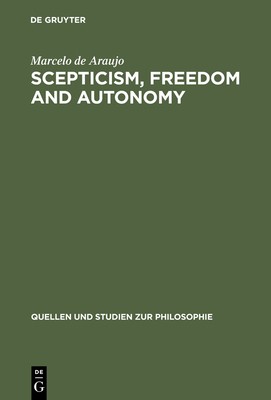
- We will send in 10–14 business days.
- Author: Marcelo de Araujo
- Publisher: De Gruyter
- Year: 2002
- ISBN-10: 311017538X
- ISBN-13: 9783110175387
- Format: 15.9 x 23.4 x 1.9 cm, hardcover
- Language: English
- SAVE -10% with code: EXTRA
Reviews
Description
How much does what we think depend on what we want? Descartes' much-discussed position has often been interpreted to mean that we hold an opinion as the result of a decision. In Scepticism, Freedom and Autonomy, Araujo argues against this interpretation, asserting that we retain control over our opinions only through selective attention. Even for this limited control, however, Cartesian Scepticism implies the possibility of self-delusion, symbolized in the writings of Descartes by the figure of the evil god. Hence, the existence of an evil god would not only cast doubt on our claims to knowledge but also jeopardize our freedom.
In this new interpretation, the Cartesian Scepticism, which is usually ascribed only epistemic significance, proves relevant for a fundamental moral question, that of human autonomy in general.
EXTRA 10 % discount with code: EXTRA
The promotion ends in 15d.22:23:29
The discount code is valid when purchasing from 10 €. Discounts do not stack.
- Author: Marcelo de Araujo
- Publisher: De Gruyter
- Year: 2002
- ISBN-10: 311017538X
- ISBN-13: 9783110175387
- Format: 15.9 x 23.4 x 1.9 cm, hardcover
- Language: English English
How much does what we think depend on what we want? Descartes' much-discussed position has often been interpreted to mean that we hold an opinion as the result of a decision. In Scepticism, Freedom and Autonomy, Araujo argues against this interpretation, asserting that we retain control over our opinions only through selective attention. Even for this limited control, however, Cartesian Scepticism implies the possibility of self-delusion, symbolized in the writings of Descartes by the figure of the evil god. Hence, the existence of an evil god would not only cast doubt on our claims to knowledge but also jeopardize our freedom.
In this new interpretation, the Cartesian Scepticism, which is usually ascribed only epistemic significance, proves relevant for a fundamental moral question, that of human autonomy in general.


Reviews